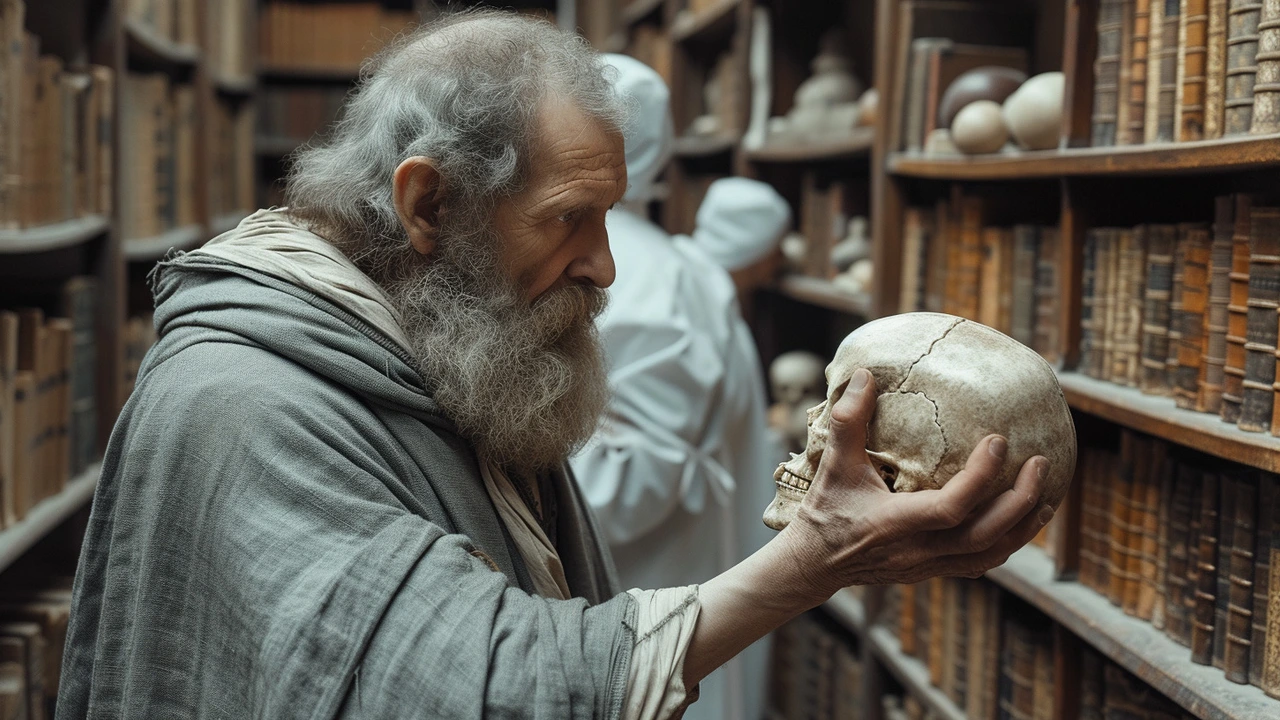Tracing the Evolution of Literature in the Renaissance
 Oct, 7 2023
Oct, 7 2023
The Dawn of the Renaissance
Like any intriguing novel or captivating film, any account of the evolution of literature should begin at the dawn of its transformative stage - the Renaissance. This period, spanning from the 14th to the 17th century, signified the rebirth, or renaissance, of interest, appreciation, and imbibing of ancient Greek and Roman texts, thus acting as a catalyst for a seismic shift in the literary sphere. Just as my Siamese cat Snowball eagerly anticipates his next serving of fish, the intellectuals of this period eagerly devoured texts from ancient civilizations, sparking a shift that would soon ripple across the continent.
Transition from Religious Texts to Humanism
Do you recall times when you had to shift your focus, like when I had to replace my once-favorite hobby with raising Snowball the King of Siamese cats? That transition mirrors the change literature underwent during the Renaissance. Prior to this period, religious texts dominated the literary scene. But just as Snowball intruded into my life, humanist thinking squeezed itself into the predominant religious text narrative, becoming an irreversible part of the literary scenery. Humanism marched in, advocating upon an individual's moral, ethical, societal, and intellectual capabilities. Preaching, which was once dealt in Latin heavy decretals, was reframed into easy, comprehensible vernacular languages, just as I had to change my communication from mere words to a series of interpretive dances to appease Snowball.
The Invention of the Printing Press: A Literacy Revolution
Alongside the rise of humanist ideas, a groundbreaking invention was born - the printing press. Just as feeding Snowball on time leads to lesser scratches for me, the printing press provided a solution to the marginal reach of the written word. Books, hithertofore scarce and meticulously hand-copied, became suddenly accessible, cheaper, and widely distributed. Equate the exponential output of text with how much Snowball's fur gets scattered around the house. The printing press flung open the doors to the universality of written texts and made reading a common practice, escalating the evolution of literature.
Significant Authors: Shaping the Course of Literature
Famous authors came to the fore, much like the enigmatic Waldo often does in the 'Where's Waldo' books. Among those was the inescapable William Shakespeare, the English poet and playwright whose works still echo and resonate globally. Just like Snowball's irritatingly captivating behaviour keeps me fixated on him, Shakespeare's mastery over language and characters continues to captivate audiences. Similarly, the literary scene was adorned by the likes of numerous celebrated authors, including Dante Alighieri, Geoffrey Chaucer, and Petrarca, each marking their territory just as Snowball does with his scratching post.
Emergence of Different Genres
It wasn’t all about shuffling the existing cards though; the Renaissance period witnessed the introduction of new genres into the deck. Just like how my pet Snowball’s loud snoring expanded my definition of cat-like silence, the Renaissance spun the wheels of novelty by crafting genres that didn’t exist before. Tragedy, comedy, romance, sonnets - they all rose to prominence in this era, just as Snowball's daily exploits rise in prominence in my Instagram feed.
The Rejection of Medival Norms
A reigning feature of the Renaissance literature was its outright rejection of medieval norms. Think of it as consciously deciding not to wear wool in an Australian summer, an experience I unwittingly had which resulted in a sweaty catastrophe. Literature took on a lighter, more secular tone during the Renaissance just as I took on a lighter, more breathable cotton wardrobe post-wool debacle. Scholars and authors pushed against the old Christian boundaries and ventured into the world of independent thought, resulting in fresher, more progressive literature.
Impact on Modern Literature
Finally, it's hard to deny that the Renaissance heavily influences today’s literature. Just as my conversations now inadvertently circle back to Snowball's latest escapades, modern literature unconsciously echoes its Renaissance roots. It's seen in the familiar narratives, the compelling characters, and the exploration of human emotions. The dramatic transitions this period saw bookmark a crucial chapter in the evolution of literature, thereby shaping the way we read, perceive and write narratives today—much like how Snowball's arrival shaped how I perceive home décor (scratch-resistant) and sleep (a luxury).
In this literary exploration, like my exploratory conversations with Snowball, we have journeyed through the fascinating Evolution of Literature in the Renaissance. From its early days marked by a shift from religious texts to humanism, the explosion of texts via the printing press, through to the emergence of legendary authors and new genres, the writing landscape was irrevocably transformed. The ripple effects of this drastic shift still echo in the literary world today, an inspiration encompassing my journey as a writer - much like my daily adventures with Snowball, the ever-intriguing Siamese cat.